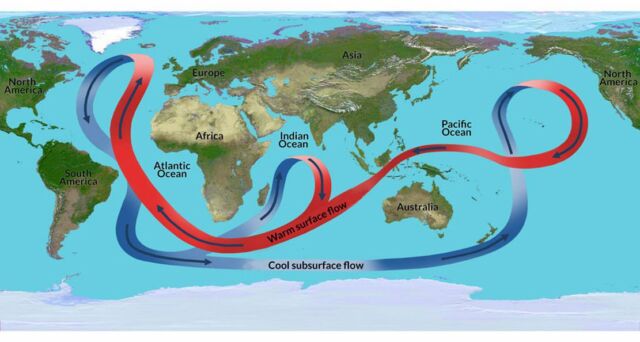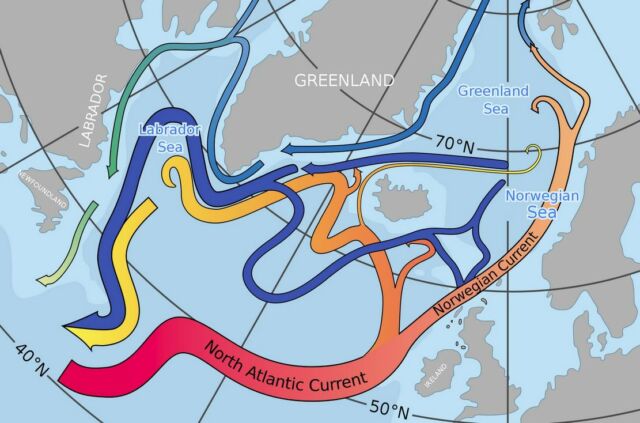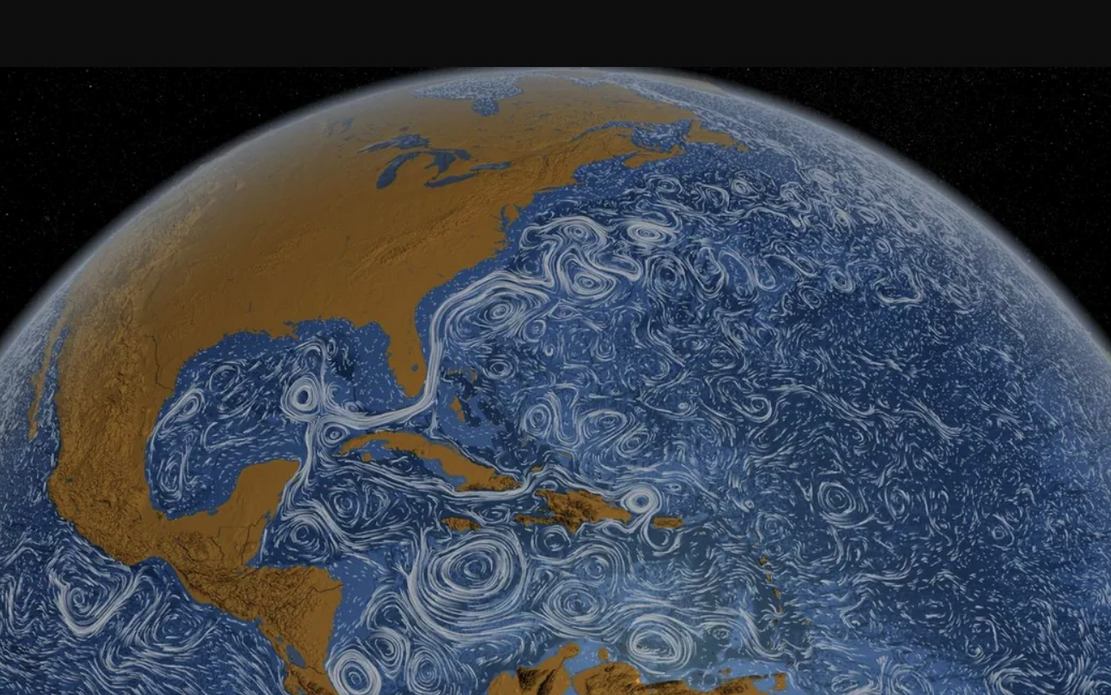Atlantic Ocean currents could collapse by 2050 if global greenhouse gas emissions persist.
Important ocean currents that redistribute heat, cold, and precipitation between the tropics and the northernmost parts of the Atlantic region will shut down around the year 2060 if current greenhouse gas emissions persist. This is the conclusion based on new calculations from the University of Copenhagen that contradict the latest report from the IPCC.
Above: The AMOC is a gargantuan ocean current in the Atlantic that transports warm water from the tropics northward at the ocean surface and cold water southward at the bottom of the ocean. Credit: NASA Goddard

Rising temperatures could shut down the Atlantic Ocean current (depicted here) that helps warm northwestern Europe, a new simulation shows. Credit JPL-Caltech/NASA
Contrary to what we may imagine about the impact of climate change in Europe, a colder future may be in store. In a new study, researchers from the University of Copenhagen’s Niels Bohr Institute and Department of Mathematical Sciences predict that the system of ocean currents that currently distributes cold and heat between the North Atlantic region and tropics will completely stop if we continue to emit the same levels of greenhouse gases as we do today.
Using advanced statistical tools and ocean temperature data from the last 150 years, the researchers calculated that the ocean current, known as the Thermohaline Circulation or the Atlantic Meridional Overturning Circulation (AMOC), will collapse – with 95 percent certainty – between 2025 and 2095. This will most likely occur in 34 years, in 2057, and could result in major challenges, particularly warming in the tropics and increased storminess in the North Atlantic region.

Credit wikimedia
Professor Peter Ditlevsen from the Niels Bohr Institute, said:
“Shutting down the AMOC can have very serious consequences for Earth’s climate, for example, by changing how heat and precipitation are distributed globally. While a cooling of Europe may seem less severe as the globe as a whole becomes warmer and heat waves occur more frequently, this shutdown will contribute to increased warming of the tropics, where rising temperatures have already given rise to challenging living conditions.
Our result underscores the importance of reducing global greenhouse gas emissions as soon as possible.”
source Nature



